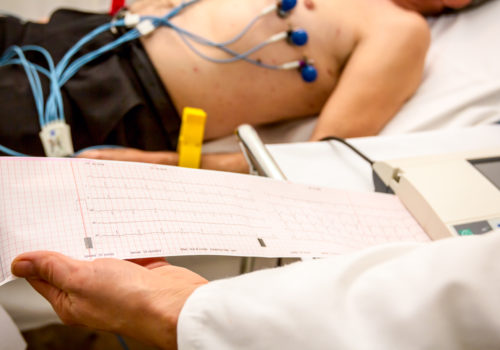In-house D-dimer testing and the Wells Score combined meant that cases were referred to secondary care only when patients were strongly suspected to have VTE or pulmonary embolism. Some 86% of VTE cases had properly documented risk assessment.
Guidance on optimal management of stable angina in general practice
For most people symptoms can be controlled by optimal medical management and healthy lifestyle choices. Revascularisation gives symptom relief but is not without risk, and its long-term benefits remain uncertain.
The new European Society of Cardiology guidelines on heart failure: moving beyond NICE guidance
The 2012 ESC guidelines on heart failure, published only two years after the updated NICE guideline, spell out therapeutic advances about which doctors need to be aware. They include recommendations on mineralocorticoid receptor antagonists (MRAs), ivabradine and cardiac resynchronisation therapy (CRT).
Medication adherence in cardiovascular disease: how to address one of the challenges of preventive medicine
Drugs don’t work in people who don’t take them. This is a problem that affects 57% of all patients prescribed drugs to prevent heart attacks and strokes, according to a recent meta-analysis combining data from more than 370,000 patients.
Heart rate control in people with heart failure: education may improve outcomes
Heart rate appears to be a marker for optimal medical therapy in heart failure, and a key determinant of hospitalisation. This study compared practices using the local enhanced service (LES) for heart failure against those not delivering the LES. Education and heart rate control seem to influence hospitalisation rates.
An intervention trial for patients with hyperglycaemia and acute coronary syndrome: How effective is lifestyle advice?
Abnormal glucose metabolism in people admitted to hospital experiencing an acute coronary syndrome (ACS) strongly predicts development of type 2 diabetes and future cardiovascular events. This paper describes a prospective nine-month parallel design randomised intervention trial involving people admitted to the Wellington Regional Heart and Lung Unit with ACS and hyperglycaemia.
Sex hormones and the male heart
There is conclusive evidence that low testosterone is associated with erectile dysfunction (ED) and that ED is a strong marker for cardiovascular risk. There seems to be a link between testosterone level and mortality, and there are suggestions that testosterone replacement therapy may reduce mortality.
Current approaches to combination therapy for essential hypertension: The rationale for combined calcium channel blockade and beta-blockade
Despite the availability of effective therapies, there remains poor awareness, diagnosis and management of hypertension across the globe. Effective treatment requires an understanding of the underlying disease processes involved in hypertension which includes chronic increased sympathetic activity and peripheral resistance rather than focusing simply on blood pressure reduction. The differing pathophysiological response patterns of younger […]
NHS reforms in England: are healthcare professionals ready to commission cardiovascular care?
We undertook a survey to discover whether primary care health professionals felt willing and sufficiently skilled to commission cardiovascular services, and what their support needs might be. Although clinicians were confident in their clinical and communication skills, the vast majority of respondents felt unsure of their skills and knowledge to commission cardiovascular care and believed they would need specialist advice to help them. There was a strong desire for training, a feeling of exclusion and a plea for nurses to be involved.
An unusual cause of heart failure
We describe a patient with heart failure, diagnosed from clinical history and examination, and with a raised BNP. Despite treatment, her symptoms progressed. Echocardiography, performed after a six-month delay, showed a large mass. After excision of the mass, an atrial myxoma, the patient recovered rapidly and well.
ECG recording in primary care: is it done correctly?
The ECG is the most commonly performed cardiac investigation but incorrectly recorded ECGs may lead to misdiagnosis. In this study, questionnaires were used to assess the pre-training perceived and actual knowledge of correct ECG recording technique among 54 primary care staff. Training was then performed and, after training, many staff admitted that their previous practice had been incorrect some or all of the time and said that they would change their practice.
Discussing weight status with patients: words and context matter
Although primary care consultations appear to represent an excellent opportunity to discuss a patient’s weight status, GPs may be reluctant to do so. Excess weight can be an extremely sensitive issue and some terms (such as obese and fat) may provoke highly negative emotions. People who are overweight or obese say they would find unsolicited advice off-putting, but would also be more likely to try to lose weight if advised by a health professional than by family or friends.























